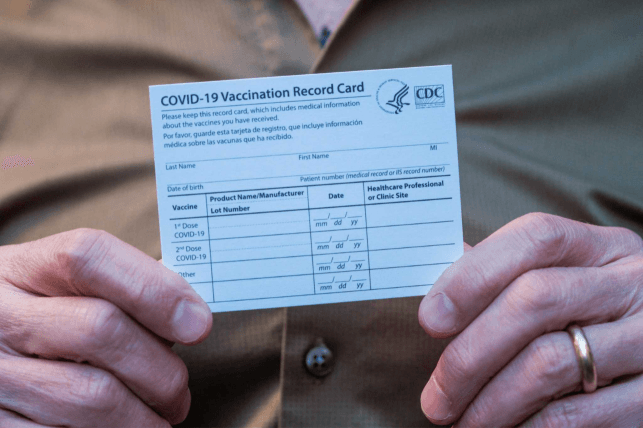
Refusal to Take Medication
Tami Anastasia, M.A., CSA
Caregiving Tips
Aug 04, 2021
10 min read
Refusal to take medication is a common symptom of dementia and it can be extremely distressing to deal with as the caregiver. Try not to take their refusal of medication personally. There is often an underlying “reason” or “fear” as to why someone refuses to take their medication. It may not be valid or logical to you, but it’s very valid or logical to them.
Instead of reacting immediately, think in terms of trying to figure out the “reason” they don’t want to take their medication. For example, you might respond by saying “I can see you don’t want to take your pills right now, can you to tell me why?” Trying to figure out the reason they don’t want to take their medication may help you find a solution. A word of caution, don’t try to challenge or dispute their “logic.”
Below are 13 suggestions if your loved one refuses to take their medication.
Keep a medication log. Observe and keep track of when your loved one refuses to take their medication. If you can identify potential triggers or causes, there may be solutions to increase the chances of taking their medication
Pay attention to WHY they don’t want to take their medication. Write down in their words why they are refusing to take the medication and what was going on at the time you were trying to administer the medication. For example, was
the TV on and you interrupted what they were watching? Were there loud noises? Are the pills too big? Do they think the pills are poison? Do they dislike the color of the pills? Did you wake them up while they were sleeping?
Use short, simple and direct sentences to encourage them to take their medication. In addition, you might need to provide verbal and physical cues and show them how to take their pills. For example, you might say to your loved one “it’s time to take our pills and you put a pill in your loved one’s hand and one in your hand and on the count of three you both take your medication at the same time so they can copy how you did it. If you don’t take any medication, you might take your vitamins at the same time as your loved one or pretend skittles or mints are medication.
Omit calling their medication “medication” or “pills” and substitute those words with other words, such as candy or vitamins.
Don’t try to force them to take their medication because this could cause them to react physically and/or violently. Walk away and try again later.
Try to figure out if there is a “best” time of day for your loved one to take their medication or if there is a favorite food or drink that increases the likelihood of them taking their medication. Try to avoid giving medication during times of the day that are more challenging or difficult for them. For example, if they tend to get agitated or confused late afternoon or later in the evenings you might want to consider changing the time of day you give them their medication.
Always consult the doctor before you make any changes to make sure it’s okay to do this.
Try to establish a consistent medication schedule if possible. Consistency is very important for people living with dementia. They get used to a certain routine and this increases the chances of cooperation. Give them their medication around the same time every day or after the same event/activity or give them a favorite glass with water to take the pills.
Combine taking medication with another activity they enjoy. For example, you might want to give them their medication while listening to music, having a snack, or watching the birds in the backyard so taking their medication is associated with something positive.
You may also consider decreasing the number of “pills” your loved one is taking by omitting vitamins or supplements that haven’t been recommended by their doctor. In addition, some vitamins and supplements could have negative interactions with the medications being taken.
Ask the doctor if some of the medication be converted to liquid form or be crushed/sprinkles. If some of the pills are too large or difficult for them to swallow ask the doctor or pharmacist what medications could be changed into liquid form or be crushed so you can add or put it in their food, such as, ice cream, scrambled eggs, yogurt, pudding, applesauce, or spoonful of jam.
Give them one pill at a time. Instead of putting all the medications out a once, give them to them one at a time (individually).
Pay attention if your loved one is having difficulty swallowing the pill(s) or if the medication is causing side effects, such as, dizziness, upset stomach, diarrhea etc. or if the pills taste bad. If this is the case, consider changing the consistency of the medication from pill form into liquid or powder form or be able to switch to a different medication that is in the same family of the current medication.
Distract/re-direct: Sometimes combining taking medication with another activity that is enjoyable can be highly effective. Or, re-directing their attention by having them share a favorite story or joke while encouraging your loved one to take their medication can increase cooperation. Also, people with dementia like to do things that rhyme so maybe you could come up with a medication rhyme and make taking their medication a fun activity or a happy occasion. Or, you could try bribing them and say to them that after they take their medication you’ll got out for a hamburger.
These 13 different suggestions might be able to help with the issues involved in taking medications. Try one or try all and see if it makes it easier. Dementia is an unusual disease and sometimes involves unusual solutions.
Please don’t hesitate to contact Tami if you are interested in any of her dementia services and virtual educational events. Also, please share this information with people you think can benefit. Click HERE to view blog post on Tami's website.
What Happens If I Misplace or Lose My California Vaccination Card?

Caring for Patients in Their Residence




